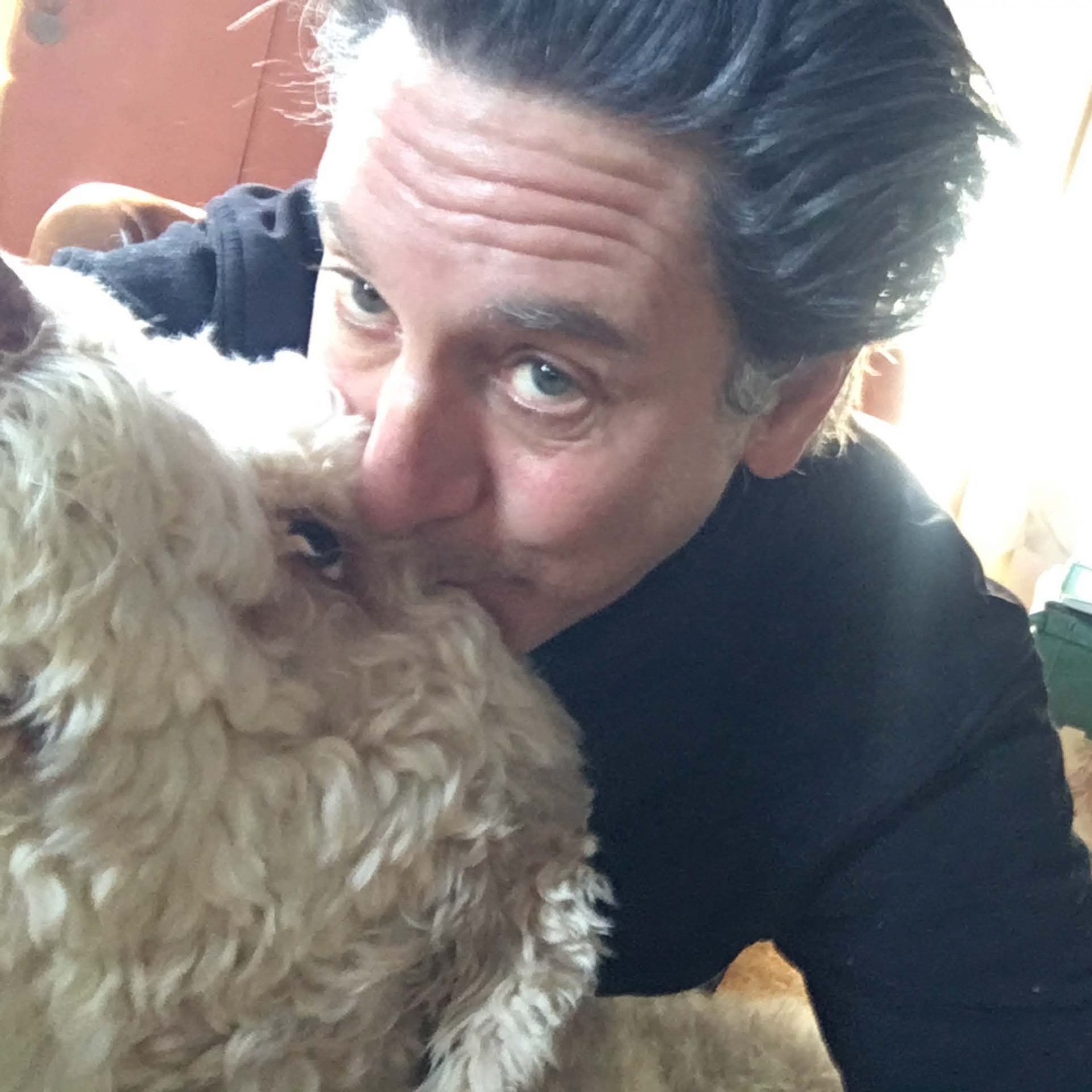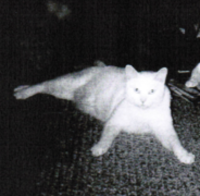This is Fanny and me. We, or I guess she really, are now in the fourth week after her CCL operation almost to the day that her other knee was operated on a year ago. Both by the wonderful, magical, and caring Dr. Haroush. Last year, pre-pandemic, with a looming scare, a big price tag and months of rehab in front of us, Dr. Haroush, Jose and the rest of this magnificent team treated us immediately, helped us in more way we could count all with the kindest and most knowledgeable of treatments. Fanny felt like it was another home and we felt like we were welcome to be as neurotic as we could be about our dog. She healed up quickly and then like clockwork which Dr. Haroush said might happen, it did again, the other knee. Now it was even worse with the Pandemic in full swing, money really tight, time tighter, it felt so huge and totally overwhelming. Did Dr. Haroush come to the rescue? He certainly did. Again, she is healing nicely, we are healing along with her and I would never send her to another vet as long as she lives. Dr. Haroush and team are spectacular in their wisdom and care. Along with treating Fanny it was like he was treating me for all the insanity we are all feeling right now. Everyday and beyond the care was present. And most of all Fanny feels loved and taken care of. What more could you ask for. I wish it was all this simple.
When your pet is acting differently and you’re not quite sure what the problem is, it could be an early symptom of an illness or even a dire emergency. Below we’ve listed some symptoms that might require a trip to the animal medical center.
UNUSUAL BEHAVIOR? LETHARGY?
A lethargic, unresponsive pet is a great indicator that they’re probably not feeling well. If your pet refuses to eat or drink, seems weak or has trouble standing, a visit to the veterinarian is necessary.
PAIN?
Pain may be recognized by your pet crying, panting or pacing, and it should not be ignored.
LAME?
Limping that persists more than a few hours warrants a call to the animal health center. Paralysis, usually displayed by your pet’s inability to stand or dragging of a leg, needs emergency care.
SWELLING AND/OR BLEEDING?
Bleeding from the mouth, nose or rectum demands immediate attention, as does a swollen eye held shut.
UNABLE TO GO TO THE BATHROOM?
Male cats seen straining in the litter box may have a dangerous urinary tract blockage. Dogs seen straining or having urinary or bowel movement more often than usual should be reported.
LABORED BREATHING?
Steady labored breathing is a sign of serious trouble. Call your veterinarian immediately. Constant coughing or gagging also needs to be checked. Is your pet having seizures? Seizures are a serious neurologic condition that must be monitored. Call your veterinarian immediately. Signs of a seizure include shaking, lying on the floor and paddling the legs, loss of awareness of surroundings, possible loss of bladder and bowel control, excessive salivation, and/or a clamped jaw.
EXCESSIVE VOMITING OR DIARRHEA?
Even healthy dogs vomit and have an occasional upset stomach, but when these symptoms become excessive, it could indicate a very serious problem. Call your veterinarian immediately and keep a close eye on your pet. Even if they are not seriously ill, ignoring these symptoms could lead to dehydration or worse.
UNCONSCIOUS OR DIFFICULTLY WAKING UP?
Dazed behavior can occur with fever, metabolic disease, ingestion of medications meant for people, changes in blood sugar levels, or diseases of the brain. It’s important to have your pet examined that day.
IS YOUR PET REFUSING TO EAT OR DRINK?
Your pet should not go more than a day without drinking. If your dog or cat won’t eat their usual meal but will hungrily scarf down treats or table food, this may mean a problem exists. Call your veterinarian if food is vomited more than once in a day, the normal appetite does not return in two to three days, or if your pet acts well but refuses to eat for more than 24 hours.
Sometimes your pet may not act very ill but problems persist for more than a day or two. Coughing frequently, vomiting or diarrhea more than twice or limping and walking gingerly all merit a call to the veterinarian.
Please note that smaller animals tend to have a much faster response to illness and disease. If your pet is less than 10 pounds, under one year, or elderly call your veterinarian as soon as you notice something is wrong. Don’t risk waiting.
If you worry your pet may be ill, please contact Dr. Haroush at our animal health center for questions about health and wellness, as well as treatment options for your loved one: (914) 941-4904.









